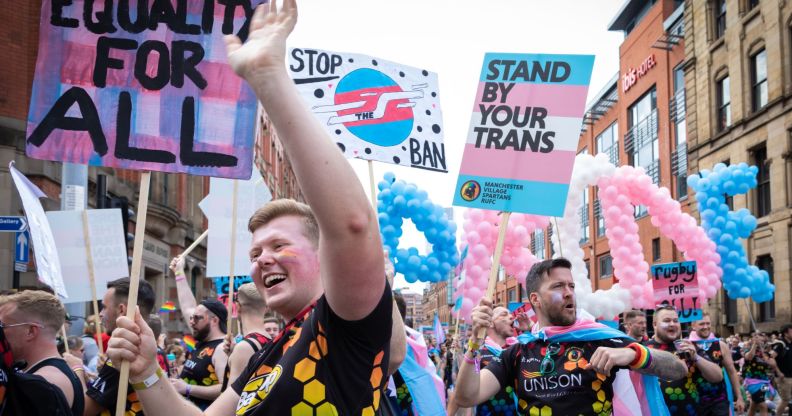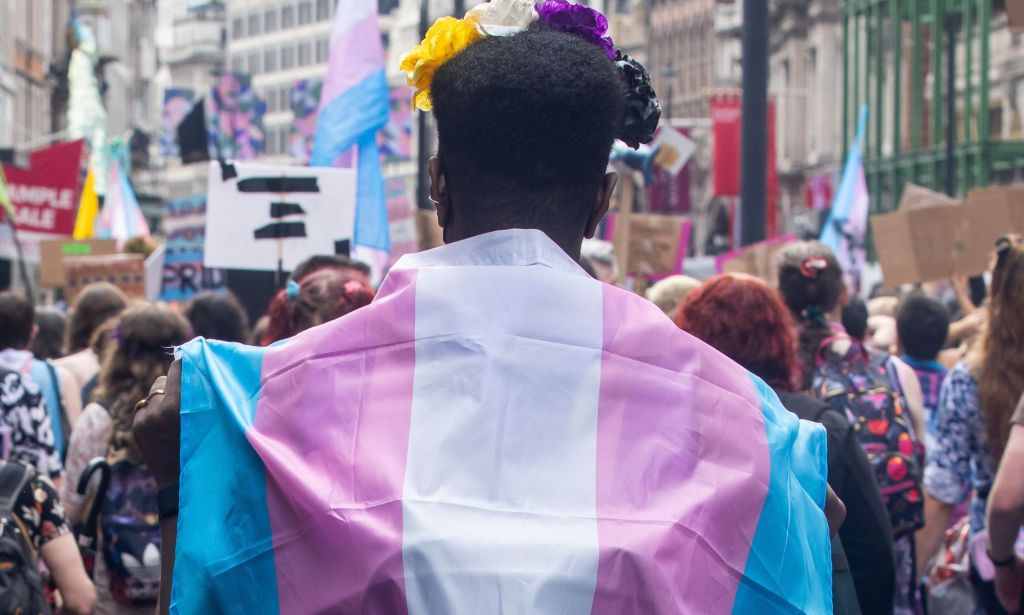Anti-LGBTQ+ legislation is motivating more trans and non-binary people to run for office

Anti-LGBTQ+ legislation in the US has motivated more trans and non-binary candidates to run for office. (Getty Images)
This year, the United States has introduced a record-breaking number of devastating anti-LGBTQ+ bills, with a particular interest in targeting transgender and non-binary individuals.
While these bills and policies have had extremely negative impacts – from plummeting mental health to rising community tensions – it has had one rather unexpected outcome: a rise in transgender and non-binary political candidates.
A new study conducted by LGBTQ+ advocacy group The Victory Institute and Loyola Marymount University has found that more transgender, gender non-conforming, non-binary, and genderqueer people were running for office as a reaction to anti-LGBTQ+ bills – whether they were running for a seat on their local school board or for state governor.
The study, which surveyed just under 500 LGBTQ+ political candidates from the last five years, asked about the influences on people’s decision to run for office.
A majority of LGBTQ+ candidates (79.3 per cent) said that their top motivator was to make a change in their local community. Meanwhile, just under half of candidates (45.8 per cent) said that their top motivation was to increase LGBTQ+ representation in elected office.
But, when surveying transgender women (14.3 per cent) and gender non-conforming and non-binary candidates (10.3 per cent) in particular, people were more likely to list a surge in anti-LGBTQ+ legislation as their top motivation to run.

This could possibly be linked to transgender, non-binary, and gender non-conforming individuals being the primary targets of recent anti-LGBTQ+ bills, ranging from bans on gender-affirming care for minors to heavy restrictions on participation in sports.
The survey also found that 79.6 per cent of LGBTQ+ people feared running for office due to an increased chance of harassment or attacks.
The highest among the various sexual orientations and gender identities worried about increased harassment were trans women (28.6 per cent) and gender-nonconforming or non-binary candidates (38.2 per cent).
But, despite those fears, more than six in 10 trans women (64.3 per cent) and gender non-conforming and non-binary candidates (64.7 per cent) reported voters were more likely to support them because of their gender identity.
And as more and more anti-LGBTQ+ bills are passed across the US every day, those candidates will need all the support they can get.
Despite the many challenges LGBTQ+ people face while running for office, a record number of candidates have been running – and winning.
In the past five years alone, there has been a 68 per cent increase in LGBTQ+ representation in elected positions.
How did this story make you feel?

